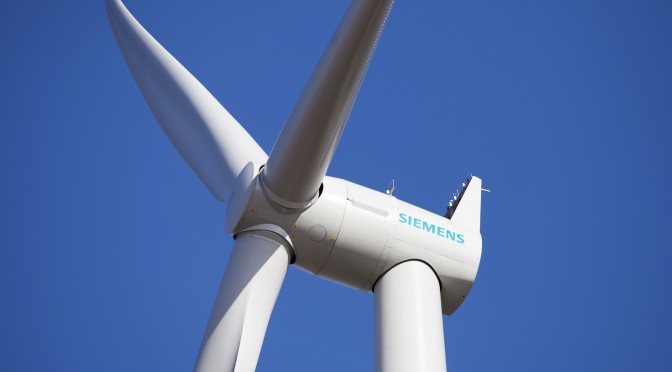Siemens Energy has entered the South African renewable energy market. For the customer, the project companies owned by Mainstream Renewable Power Limited, Globeleq, and local B-BBEE investors.
The role of renewables in the energy mix is expected to grow strongly over the next few years, not only in South Africa but on the African continent as a whole says Siemens Energy which has entered the South African renewable energy market with a bang.
Siemens entered the South African renewable energy market through a contract with a licenced independent power producer owned by Mainstream Renewable Power , Globeleq, and local B-BBEE investors Thebe Investments, Enzani and Usizo.
Siemens will erect as EPC contractor two photovoltaic power plants with a capacity of 50 megawatts (MW) each. The solar power plants are to be installed in De Aar and Droogfontein in the Northern Cape Province and are scheduled to be connected to the grid in 2014.
Siemens has also been awarded the order for the supply of 60 wind turbines for the Jeffrey’s Bay onshore wind power plant on South Africa’s southern coast with a total capacity of 138 MW. The orders include providing a comprehensive service and maintenance to help ensure the reliability and performance of the wind turbines and the PV plants. The electricity production from these three projects is expected to be sufficient to provide an eco-friendly supply for about 130, 000 South African homes.
The projects followSouth Africa’s government’s ambition to add approximately 20000 megawatts/peak of renewable electricity by 2030. The goal is to upgrade the country’s power supply and increase the number of electricity providers and operators in the domestic energy market.
“South Africahas outstanding conditions for the utilisation of solar and wind energy and has set up a remarkable renewable energy program with the Independent Power Producer Procurement Program,” says Siemens Energy CEO forAfrica, Ute Menikheim. “With our long Siemens history and strong presence inSouth Africa, we are very pleased to contribute to this leading renewable energy programme on the African continent. We are proud to be part of the South African government’s first round of tenders with the successful orders for the photovoltaic plants and the wind farm.”
Currently,Africahas approximately 580 million people who do not have access to relaible electricity supply. “Renewable energy will help to increase access to electricity, create much needed jobs and support the economic growth on the continent while lowering our carbon emissions,” Menikheim said.
Dr. Eddie O’Connor, CEO of Mainstream says the projects are important for Mainstream and the investment partners. “We are very delighted that once again we are partnering with Siemens.”Barry Lynch, Head of Procurement & Project Delivery at Mainstream, says that these will be Mainstream’s first Solar PV projects and first wind project inAfrica. “Siemens has been operating successfully inSouth Africafor over 150 years and this, in addition to their technology and execution strengths, was a key factor in selecting Siemens,” Lynch said.
Siemens will erect the photovoltaic plants, each covering an area of about one square kilometre, as a turnkey project. The delivery package for power plants comprises in each case the planning, construction, and commissioning of the plants, as well as a five-year operating and maintenance agreement.
For the Jeffrey´s Bay wind farm, Siemens is to deliver 60 wind turbines, each with a capacity of 2.3 MW and a rotor diameter of 101 metres, which the company will also install and commission. In addition, Siemens will carry out maintenance on the turbines for a period of 10 years. The long-term parts and services agreement represents the first wind service agreement for Siemens inSouth Africaand the largest onshore for the region. With this project, Siemens wind power service paves the way for further projects inSouth Africa, especially for service on new projects that could benefit from the set up and the experience at Jeffrey’s Bay. The wind farm is scheduled to start producing electricity in 2014.


